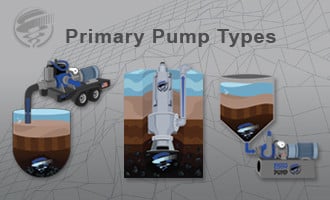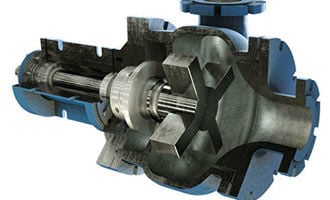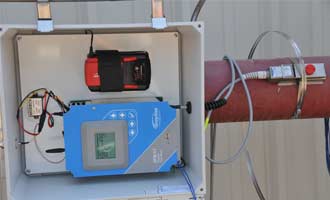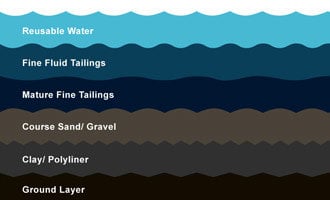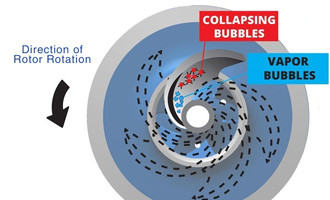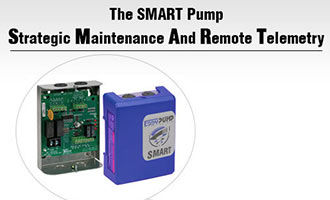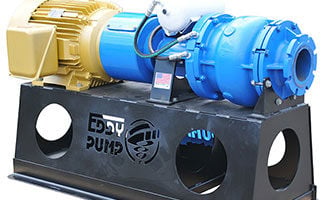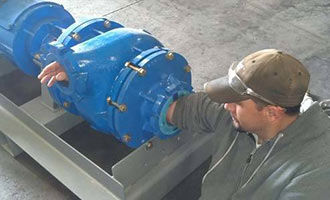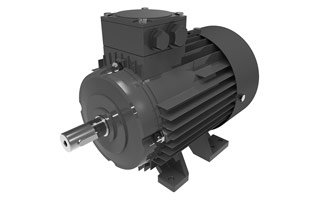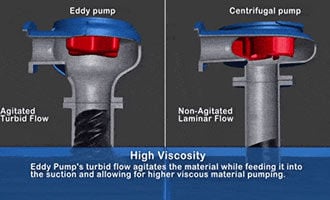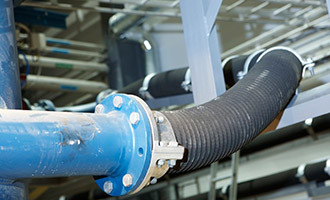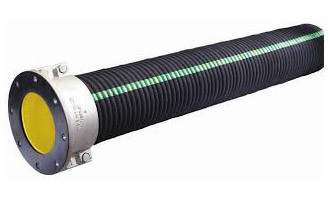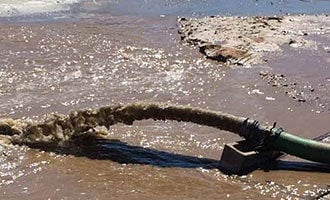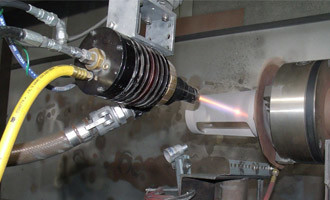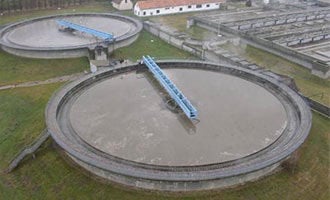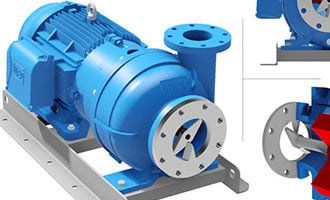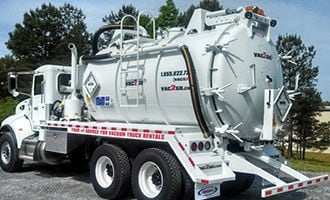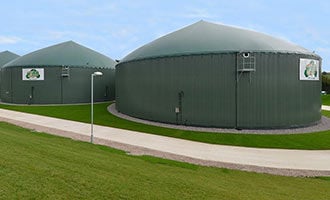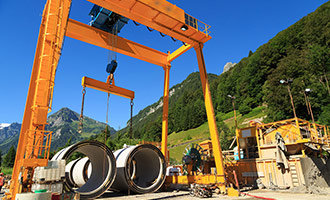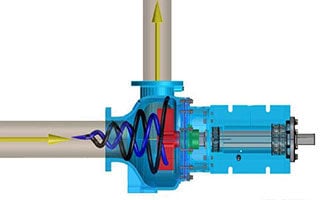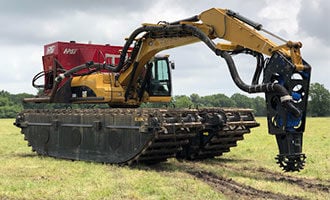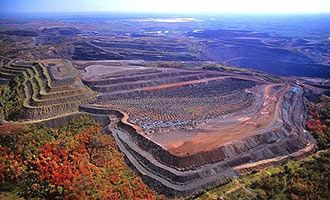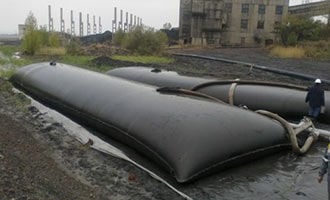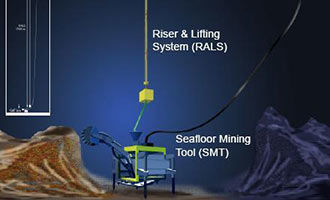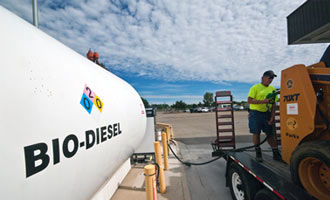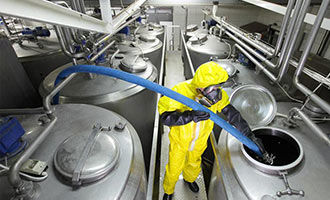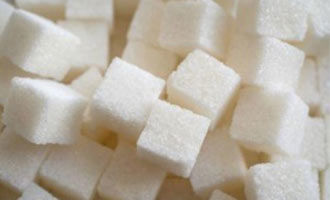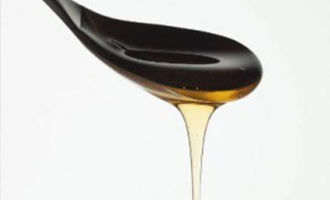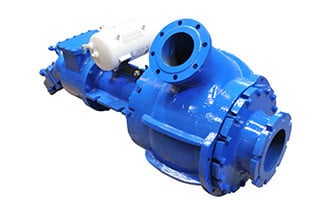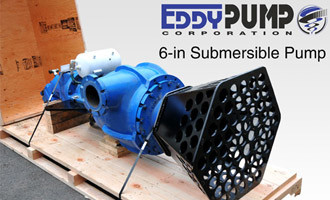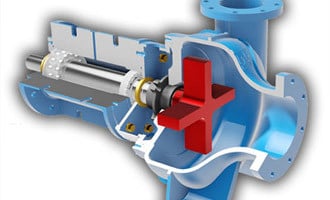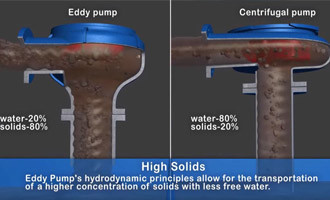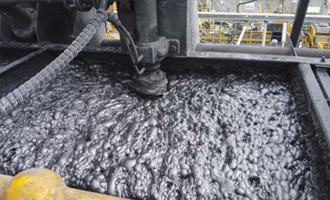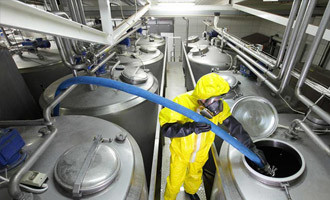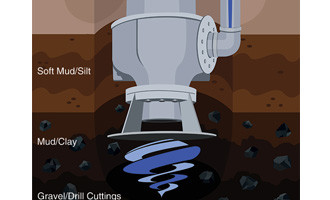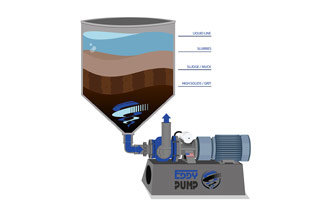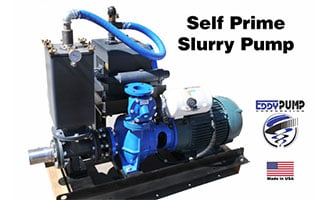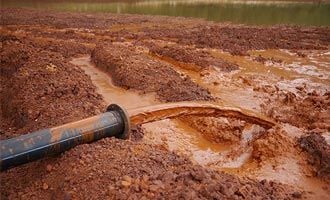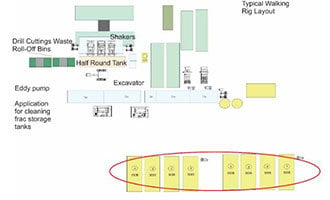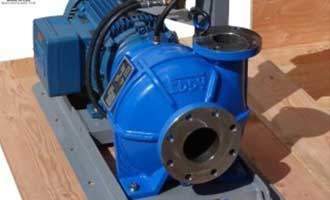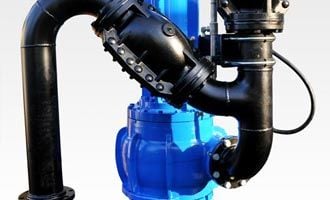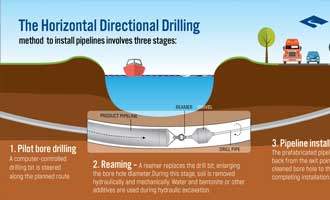Difficulties When Pumping High Viscosity Fluids
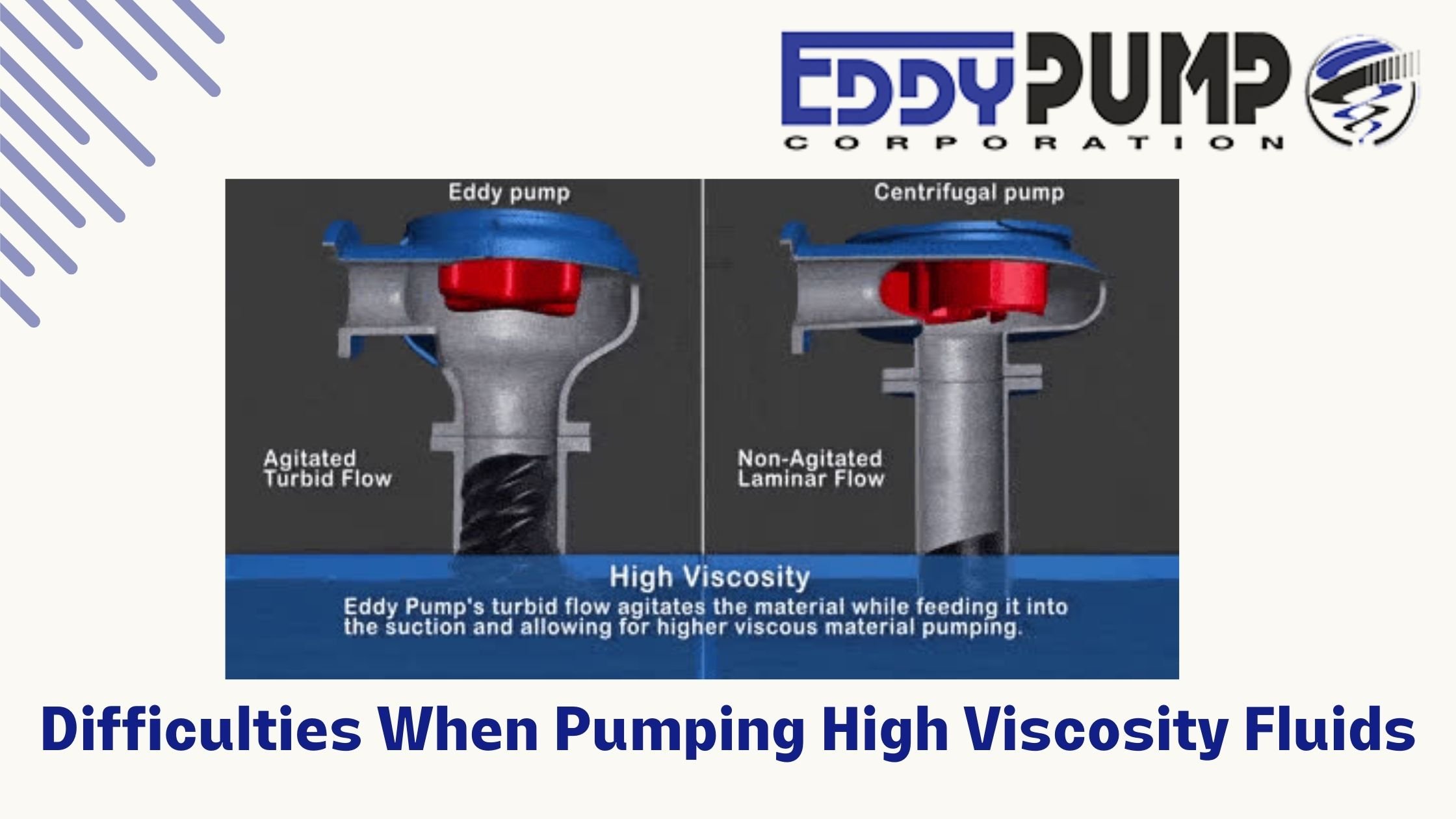
Table of Contents
What is Fluid Viscosity?
Fluid viscosity—the property of a fluid to resist the force causing it to flow—is an important property of fluid dynamics for managing viscous fluids. In simple terms, viscosity is a measurement of how quickly a liquid flows.
Trying to pump a fluid much thicker than water is challenging for many traditional fluid pumps such as centrifugal pumps. Most of them fail to deal with the dynamic viscosity challenges that these thick and difficult-to-pour fluids pose. However, you can manage to move such fluids well with well-designed high-viscosity fluids pumps.
Types of Viscosity Found in Fluids
Fluid viscosity can be classified into two main categories: Newtonian liquids and Non-Newtonian liquids.
Newtonian Liquids, such as water or alcohol, exhibit constant viscosity regardless of shear rate or agitation. These fluids have a linear relationship between viscosity and shear stress. Such fluids can be managed with centrifugal pumps
Non-Newtonian Liquids are of two types :
- Thixotropic or shear thinning liquids that exhibit reduced viscosity when agitated or mixed, such as paint.
- Dilatant or shear thickening liquids that exhibit increased viscosity when agitated or mixed, such as quicksand.
The Challenges that High-Viscosity Fluid Pumps Face
The changing nature of viscosity requires dynamic changes in the performance of the high-viscosity fluid pump in real time.
For dealing with high-viscosity fluids, centrifugal pumps are not well suited. They cannot deal with the close tolerances needed and the unique needs of non-newtonian liquids. They generally fail with the load changes on the pump with viscosity variation. There is a need for dynamic variation and optimization of flow and the head of the pump.
As the viscosity increases, the pump performance needs to be optimized to match the variation in fluid viscosity. If optimization remains incomplete or incorrect, the pump may fail. For an effective pump design, you also need the right kind of impeller for high-viscosity fluids without the risk of failure.
How to Determine the Right Pump for High Viscosity?
It is important for you to first measure the viscosity of the fluid well that is to be transferred prior to purchasing a pump. This can be done using a device called a viscometer for fluids, which shows a single flow condition like that of Newtonian fluids.
For liquids with viscosities that can vary depending on flow like in non-Newtonian fluids, an instrument called a rheometer is used.
Viscosity values are measured in centipoise (cp), centistokes (cSt), and Saybolt Second Universal (SSU). The greater the value, the more viscosity challenges that need to be addressed.
| Typical liquid | Centipoise (cp) |
Centistokes (cSt) |
Saybolt Second Universal (SSU) |
| Water | 1 | 1 | 31 |
| Milk | 3 | 4 | 40 |
| No. 4 fuel oil | 12.6 | 15.7 | 80 |
| Cream | 20 | 20.6 | 100 |
| Vegetable oil | 40 | 43.2 | 200 |
| SAE 10 oil | 88 | 110 | 500 |
| Tomato juice | 180 | 220 | 1,000 |
| SAE 30 oil | 352 | 440 | 2,000 |
| Glycerine | 800 | 1,100 | 5,000 |
| Honey | 1,500 | 2,200 | 10,000 |
| Glue | 3,000 | 4,500 | 20,000 |
| Mayonnaise | 5,000 | 6,250 | 28,000 |
| Molasses B | 8,640 | 10,800 | 50,000 |
| Sour cream | 15,000 | 19,000 | 86,000 |
The pump remains the key driver in the movement of the viscous fluid. All other elements must match its features and functionalities.
Choosing the Correct Pipeline Size
The pipeline must be wider than the inlet of the pump and the maximum size of solids to be handled with reasonable allowances for non-clog performance.
Why Choose EDDY Pumps?
EDDY Pump Corporation manufactures state-of-the-art high-viscosity fluid pumps. The EDDY Pump Corporation offers a full line of products that are specifically designed for high viscous fluids. The mission statement states it well: “We pump solids, not water.”
If you have the challenge of pumping slurry, high solids, extremely viscous material, paste, high abrasives (sand & gravel), and material filled with solids, then look no further.
The EDDY Pump Corporation is a globally renowned premier industrial pump manufacturer founded in 1984. To know more about us, please follow this link.
More Information on Slurry Pumps
EDDY Pump industrial slurry pumps are non-clog pumps designed for high solids industrial pumping applications. Our patented pump technology outperforms all centrifugal, vortex, and positive displacement pumps in a variety of the most difficult pumping applications.

Cross Section of Horizontal Slurry Pump
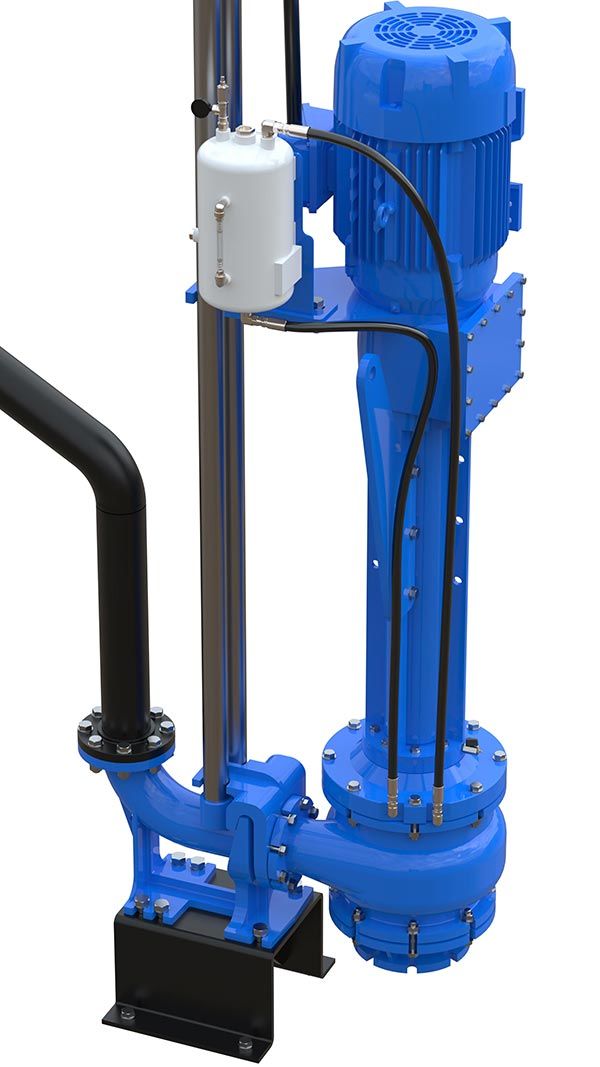
Vertical Slurry Pump
The traditional pumps get clogged, wear down, fail quickly, and require a lot of maintenance.
EDDY Pumps are non-clog and have the following features:
- Open Rotor Design
- Non-Clog operation
- 40-70% Solids Pumping by Volume
- Ability to pump objects of up to 11-inches in diameter
- Backed by State-of-the-Art Research and Development Facilities
- 100% American Made
- Low Total Ownership Cost
The EDDY Pump’s geometric rotor acts as a mixer for even highly viscous non-newtonian quality liquids. It addresses fluids with even less than 5% free liquid. This is an impossible task for traditional centrifugal pumps.
To view our range of slurry pumps or pumps for high-viscosity fluids, please follow this link: EDDY Slurry Pumps.
Solving your problem of dealing with highly viscous fluids
If you are facing the challenge of pumping a high-viscosity liquid, you need to find the best pump for high-viscosity fluids out there. A specially designed pump for highly viscous fluids should be the one that you go with.
To read more such articles, please visit our blog.
For your Slurry pump, dredging equipment application in construction, mining, chemical, oil & gas, pulp and paper, sewage treatment and marine industries, email EDDY Pump or call us at 619-558-3250. You can also Request a free sales quote.
FAQs
FAQ 1: What are high-viscosity fluids?
Fluids that are very difficult to pour are high-viscosity fluids. They move sluggishly and are difficult to deform.
FAQ 2: What are the applications of high-viscosity fluids?
Lubricants for heavy machinery or as brake oil in automobiles are highly viscous fluids. Liquid foods, animal fats, and edible cooking oils are some examples of such fluids.
FAQ 3: What are the challenges associated with handling high-viscosity fluids?
They require a specific tubing design and a pressure feed to make it flow. They also need to be pumped at a lower RPM to move the fluid.
FAQ 4: What are the methods for measuring the viscosity of high-viscosity fluids?
Shear Viscosity is of two types-shear, kinematic. It is measured by viscometers, rheometers, non-contact rheology, and formulation techniques.
FAQ 5: What are some common high-viscosity fluids?
Common high-viscosity liquids are crude oil and some derivatives. Other examples are paraffin, honey, asphalt, methanol, resin, crude benzene, etc.
Order or Get Selection Help
Related Products
HD (Heavy Duty) Slurry Pumps
Pumping Viscous Red Mud – Highlights
This video shows how EDDY Pump performs when pumping high-solid red mud or bauxite which is abrasive, highly viscous, and corrosive.
Why EDDY Pumps Are Better - Highlights
This video shows how EDDY Pump transports high slurry and abrasive materials. Featured dredge pump equipment includes the Remote Operated Subdredge, Diver Operated Pump and a Excavator Attachment Dredge Pump.

